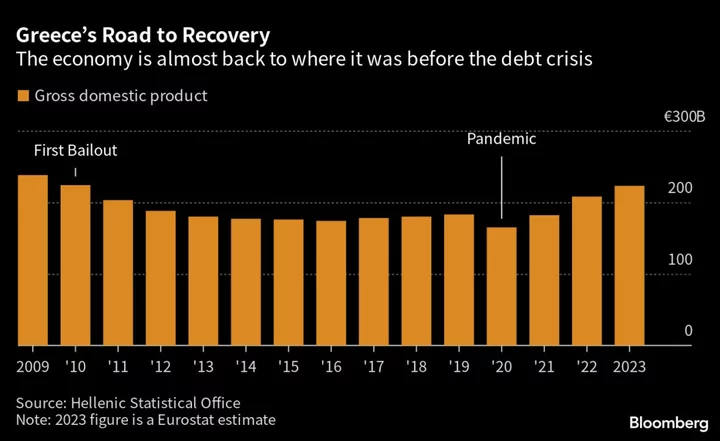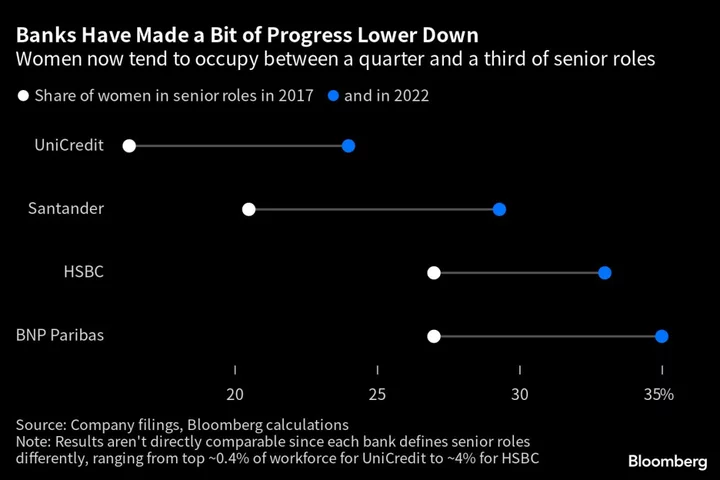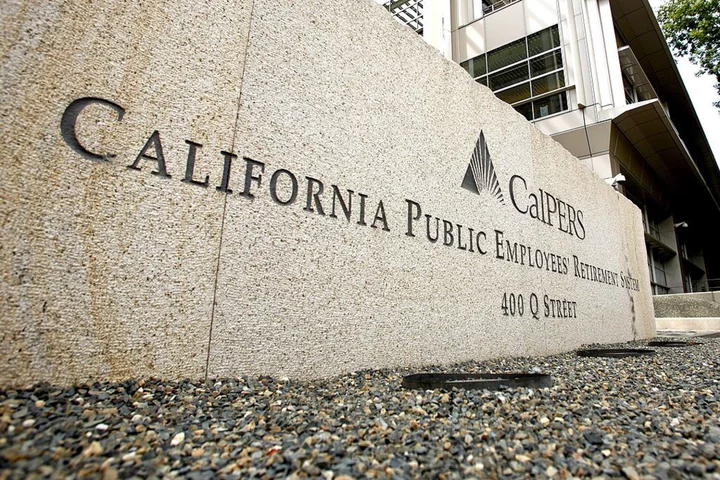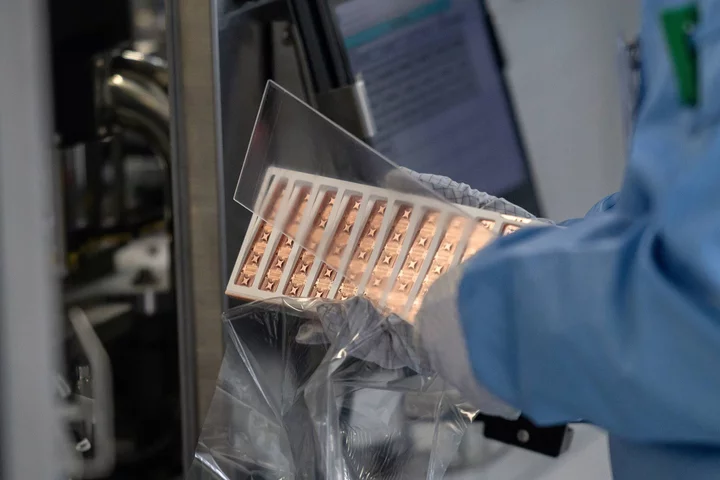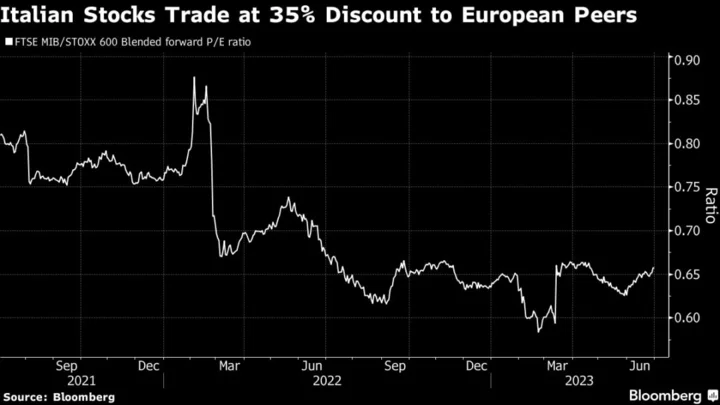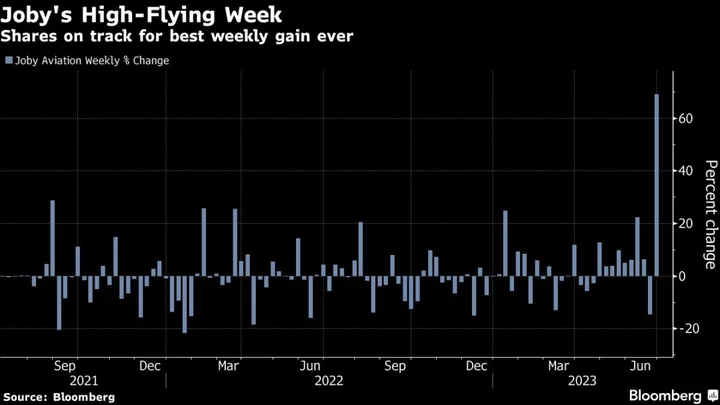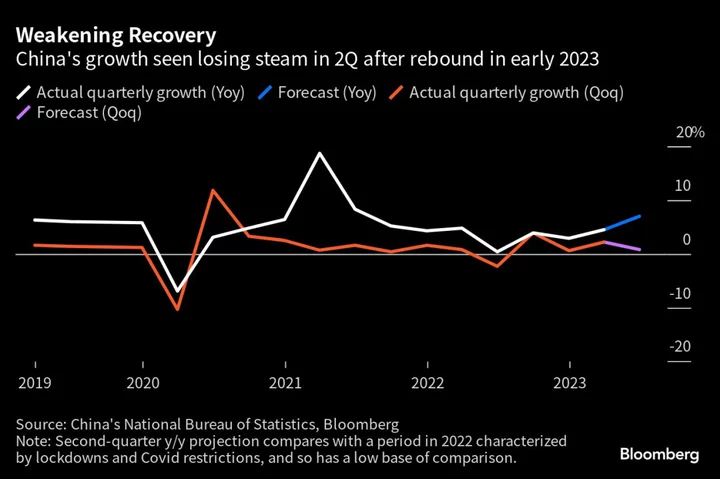Greece’s Kyriakos Mitsotakis trounced the opposition in Sunday’s general election, giving the former prime minister a resounding mandate for the next four years and assuring markets that he’ll be able to implement investor-friendly policies.
Mitsotakis’s conservative New Democracy got 40.6% of the vote, or 158 members in the 300-seat parliament. This means he’ll be able to form a single-party government without the help of any other parties.
Markets have rallied behind the prospect of another four-year term for Mitsotakis, who made his stewardship of the economy a central pillar of his campaign. The Athens Stock Exchange General Index is up more than 36% this year and the yield on Greek 10-year bonds is around 3.6%, the lowest in about 10 months.
“The people gave us a secure majority,” Mitsotakis said on Sunday night. “Major reforms will proceed at speed.”
Mitsotakis will be sworn in on Monday as prime minister, at which point he will immediately appoint a new cabinet so he can travel to Brussels for a meeting of European Union leaders set for June 29-30. Mitsotakis was Greece’s premier from 2019 until last month, when Ioannis Sarmas was appointed as caretaker prime minister following the indecisive May 21 election.
Mitsotakis ran on Greece’s economic transformation, which has seen gross domestic product recover to just about where it was when the country lost its ability to repay its debt in 2010. Unemployment has more than halved from its peak of 28%, and stocks and bonds have soared.
During the pre-election period, Mitsotakis called on Greeks to give him a strong majority so that he could reform the nation. He pledged to increase wages in the public sector and to boost the economy to help lift salaries of private-sector workers. He also promised to significantly upgrade the healthcare system and to speed up the processes in court cases.
The new parliament will comprise eight parties, including three far-right groups, such as the Spartans — a nationalist party supported by one of the leading officials of the ultra-right Golden Dawn party who’s now in jail.
“The fringe parties would have a platform from which to broadcast their populist message and attempt to disrupt the government’s agenda,” Wolfango Piccoli, co-president of Teneo Intelligence in London, wrote in a research note. “The far-right parties will likely exploit politically toxic issues like migration, the relationship with Turkey, abortion, the role of religion in education, Russia sanctions to try to corner the government.”
The first challenge for the new government will be to improve the country’s junk-level sovereign debt rating, which Greece received 13 years ago during the global financial crisis. Ratings agencies are scheduled to update their assessments on the economy in the second half of the year, with firms including Fitch Ratings and Standard & Poors now placing the country one notch below investment grade.
“Structural reforms are essential for the country to realize its huge potential, increase investment and overperform the eurozone in terms of growth while also avoiding external imbalances,” Eurobank SA’s Chief Economist and Deputy General Manager Tasos Anastasatos said ahead of the election. “These will also ensure that the country will climb quickly higher” on the credit-rating scale, he said.
Mitsotakis will also seek to tackle Greece’s current account deficit, which, due to the energy-price shock, reached 9.6% of gross domestic product in 2022 from 5.5% the previous year.
He’s also said that fighting tax evasion would be one of his new administration’s priorities. Bank of Greece chief Yannis Stournaras told In.gr that Greeks were declaring incomes worth €80 billion ($87.1 billion), even though consumption was €140 billion with deposits increasing simultaneously.
“It’s not only an issue of tax justice but also an issue of good planning of the budget and how the state works,” Maria Gavouneli, Director-General of the Athens-based Eliamep think tank, said in an interview.
Mitsotakis promised to raise the minimum wage during his next four-year term to €950 a month from €780. In 2010 before the country’s debt crisis, it was €740. He also said that average monthly income in the private sector will reach €1,500 from just under €1,200 by the end of his term, as he’ll keep trying to attract more investment into the country that will bring better and more well-paying jobs.
Greece is one of the countries that has benefited the most from European Union funds that are allocated via the Recovery and Resilience Facility set up to help EU members overcome the effects of the pandemic.

